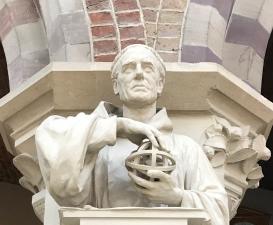A relatively understudied aspect of the polymath Roger Bacon’s (d. 1292) oeuvre is his desire to extend human life to its natural limits using alchemy and occult methods. In his gloss on the pseudo-Aristotelian Secretum Secretorum, and potentially the later chapters of his Epistola de secretis operibus artis et naturae, Bacon gives a recipe for an elixir which has the power to restore the human body to its pre-diluvian state, thus allowing man to live for several hundred years through the effects of a balanced complexion. In recent decades, scholarship has attempted to place Bacon firmly within the thirteenth century, thus demonstrating the many ways in which he was unique, but also connecting his ideas with those of previous and contemporary thinkers. Where scholarship is still lacking, though, is in the area of Bacon’s alchemical views and how they relate to contemporary ideas on medicine, a historiographically rich field. My dissertation examines Bacon’s ideas on prolonging life and compares them to the contemporary medical and theological views on aging, disease, and the nature of the body, which I believe will have important implications for the histories of medicine, alchemy, and theology. By situating Bacon within the thirteenth-century medical traditions that focused on creating panaceas such as theriac, I argue that Bacon, while certainly unique in many of his ideas, is still a part of the thirteenth-century intellectual culture and that his ideas are molded by advances in medicine and contemporary theological discourses.

Statue of Roger Bacon at the Museum of Science and Natural History in Oxford, United Kingdom
Project
Roger Bacon’s Medical Alchemy: Occult Remedies and the Quest to Prolong Life
- Meagan Selby Allen
